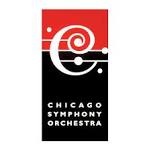Rachmaninov and Sibelius at the CSO
Program
- Dvorák The Water Goblin
- Rachmaninov Piano Concerto No. 3
- Sibelius Symphony No. 1
At Orchestra Hall, Chicago
I have come to believe it is a fact much to be lamented that most modern conductor’s lack the great eccentric personalities of Maestro’s of yesteryear—think Toscanini, and Furtwangler. There has been, on the whole, a trend in the last half century towards correct and precise playing, rather than the ideal expression of a particular musical interpretation of a given work. I pause, of course, to say that this is not always a bad thing. But it strikes one immediately, every time Sir Mark Elder ascends the podium, that he has a clear desire to impress his own, passionately held musical interpretations upon the orchestra, and so upon the audience as well. Whether Elder’s ideas are always in accord with what one might judge to be most natural to the piece, is another matter. But it is at least a pleasure to hear a keen artist at work.

Yesterday evening’s performance began with the Chicago Symphony première of Antonin Dvorak 1896 symphonic poem The Water Goblin Op. 107. The story is supposed to recount a rather bizarre tale about an underwater Goblin who drowns young women in order to convey her to his subterranean kingdom, and make her his wife. The music, however, is largely conventional, if not un-attractive. Characteristic of Dvorak is an overall German orchestral sound—relying on the preeminence of the strings, for example, in introducing melody—but containing also a decidedly more Bohemian, atmospheric use of the winds. Dvorak’s melodies have a folkloric aspect to them. Short, very symmetrical whole tone motifs, almost ostinati, pervade this piece; and in the absence of any genuinely inspiring ideas, they become a bit tedious. Dvorak’s form, however, is as clear as ever; the piece never seems to lack direction, and the listener never feels he is groping in mid-air in some dead-zone of melodic uncertainty. Though harmonically, one might have expected a little more inventiveness on Dvorak’s part.
The highlight of the evening is surely Garrick Ohlsson magisterial performance of the Rachmaninov Piano Concerto No.3 in D minor, Op.30, often dubbed by its many admirers “The Rock 3”. The first movement, “Allegro ma non tanto” is remarkable particularly for the surprising restraint, and the over all excellent taste of Rachmaninov’s sumptuous orchestration. The slow, stately tempo allows the Orchestra to bring a tenderness, and musicality to the melodic lines, which, technical excellence aside, they are nor always capable of bringing. As the piece goes on, one gets the feeling Rachmaninov could not help himself from indulging just a little in a sort of early 20th century sentimentality. But the idiom here rather pre-figures the best of the Great American Songbook of the 1930s than the often disarmingly schmaltzy Hollywood films of the same period. Here, the melodic material remains tasteful, and the accompaniment rarely sounds over-wrought, though perhaps in the last movement Rachmaninov goes on a good deal longer than he has to. But there are some wonderful things here as well: Luxurious descending harmonic sequences which suggest different possible key directions, and a recalling of the opening, unforgettable melody in the lower strings. This performance is as good a case to be made for Rachmaninov as one is ever likely to hear.
The Sibelius symphony no.1 in E minor, which closes the program, gives us Elder at his most commandeering, and the CSO is torridly acquiescent. To be frank, Elder’s interpretation of this piece is not my own, but the performance is certainly quite convincing. One could conceive of the opening, a rather understated string melody, as something rather serene, foreign, ambiguous, but never the less enchanting. From the first bar of this opening section, after the clarinet solo that begins the movement, Elder and the orchestra are fully satiate with emotional intensity, and there is no letting up. That is not to say there is nothing tender in this performance, but in an ardent, completely out-bounds sort of way, almost Gothic. By the works end, I, for one, was nearly converted; especially in some of the gorgeous melodic moments of all the strings playing in unison, and the reiteration of the opening theme of the clarinet in the lower strings.
To my mind, the first is Sibelius at his symphonic best, and it would be difficult to argue that Rachmaninov ever wrote anything as good as his third piano concerto. Yet what emerges most from this performance, at least to me, is how dearly the CSO needs a committed, full-time music director with a clear artistic vision to impress upon the orchestra. This would certainly do much in the way of bringing a greater warmth and expressiveness to the string sections, and a great deal more personality to the winds. In this performance, Elder nearly accomplishes both of these things.
Recommended.
Gabriel Kalcheim
Additional performances: Sun, February 17, 2 p.m. and Tue, February 19, 6:30 p.m

